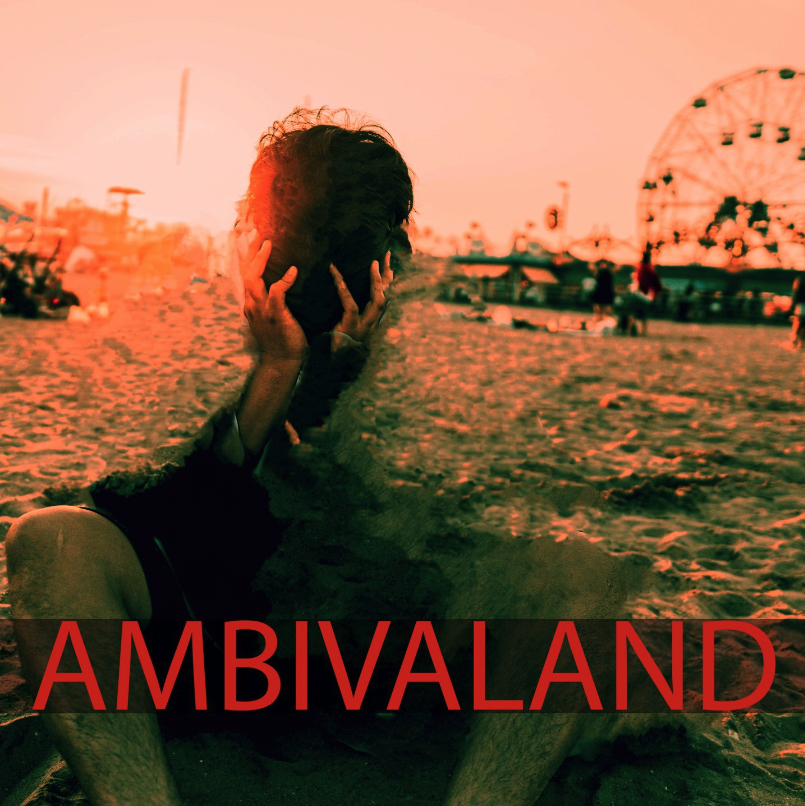Kat Mustatea’s follow-up to Voidopolis , which was just released as an augmented reality book by MIT Press. Ambivaland traces the narrative of Dante’s Purgatorio, with new constraints and algorithms. See her postings on Instagram.
Emira Mir on Instagram: Beauty Awakens the Soul to Act” (2022)
Pakistani pop singer Emira Mir posted this image to her Instagram with the comment “Beauty awakens the soul to act,” a loose (but standardized) translation of Purgatorio 18.21: Dante’s “tosto che dal piacere in atto [l’animo] è desto.”
See other examples of uses of the standardized English verse here.
Dante receives his COVID-19 vaccine
Posted to Instagram by La Repubblica and L’Espresso Settimanale illustrator Mauro Biani (@maurobia) on Dantedì (March 25) 2021. The image was also shared on La Repubblica.
Contributed by Carmelo Galati (Temple University)
Kat Mustatea, Voidopolis (2020)

“Voidopolis is a digital performance about loss and memory that is currently unfolding over 45 posts on my Instagram feed (@kmustatea). Started July 1, 2020, it is a loose retelling of Dante’s Inferno, informed by the grim experience of wandering through NYC during a pandemic. Instead of the poet Virgil, my guide is a caustic hobo named Nikita.” –Kat Mustatea
Featuring a Dantesque cast of characters ranging from the Virgilian Nikita to a mohawked Minos, a gruff ferryman named Kim and a withdrawn George Perec, Mustatea’s Voidopolis weaves through the pandemic-deserted streets of Manhattan, a posthuman landscape of absence and loss, bearing witness to its vanishings. Voidopolis won the 2020 Arts & Letters “Unclassifiable” Prize for Literature, and received a Literature grant from the Cafe Royal Cultural Foundation.
To read more about both the process of the piece and its influences, including Dante, see the interview with Mustatea featured in Dovetail Magazine (2020).
Mustatea’s project at Ars Electronica 2021
The project’s website
The Seven Deadly Social Networks
“Lust, of course, is Tinder. That’s easy. In Dante’s Inferno, a source of much seven-deadly-sin apocrypha, lustful souls are blown around forever like they’re stuck in a hurricane. Today they would be condemned to a similar cyclone—to swipe right forever but never get a match.
“Gluttony is Instagram. We hear sometimes of Tantalus, stuck in a pool below branches laden with fruit. His punishment was that the fruit always pulled away from his grasp, and the water always receded when he tried to drink. So it is with Instagram: The most tantalizing morsels pass in front of our eyes, and we can eat none of them.
“On to Greed. According to Dante, the greedy and avaricious are condemned to joust with each other using enormous heavy boulders, forever. What’s more, they are rendered unrecognizable—each soul appears as the blandest, dullest version of itself. Does that sound like LinkedIn or what? Mandelbaum’s translation put it particularly well:
… I saw multitudes
to every side of me; their howls were loud
while, wheeling weights, they used their chests to push.
They struck against each other; at that point,
each turned around and, wheeling back those weights,
cried out: “Hi, I’d like to add you to my professional network on LinkedIn.”
“Sloth was Zynga once, per Hoffman, but Zynga is no more. Now sloth is Netflix. I know that’s not a social network, but, eh.
“Wrath, according to Dante, was a twin sin to sullenness. He wrote that they both came from the same essential error: Wrath is rage expressed, sullenness is rage unexpressed. And he condemned both the sullen and the wrathful to the Fifth Circle—where, in a foul marsh, the wrathful attacked each other unendingly, without ever winning; while the sullen sat beneath the murk and stewed and scowled and acted aloof. Rarely has there been a better description of Twitter.
“Envy makes people so desirous of what they don’t have that they become blind to what they have. That’s Pinterest. I don’t have a joke about it.
“And what about pride, the weightiest sin? Hoffman said it was Facebook, but I’m not so sure. Pride is sometimes considered the sin from which all others flow: the belief that one is essentially better than all one’s neighbors. It is, I imagine, something like telling everyone else they’re bad at what they do and then saying “ping me.” Pride is Medium.
“If Facebook doesn’t represent pride, then, what is it? Some theologians recognized two other sins beyond the original seven. The first was Vanity or Vainglory—an unrestrained belief in one’s own attractiveness, and a love of boasting. That’s Facebook.
“But the second of the new sins was Acedia, a word we have now largely lost but whose meaning survives somewhat in melancholy. It is the failure to do one’s work and take interest in the world—a cousin to boredom, exhaustion, and listlessness. It is the Hamlet Feeling. It is the feeling of Tumblr, it is the feeling of Deep YouTube—it is the feeling of the afternoon Internet.” […] –Robinson Meyer, The Atlantic, May 9, 2016





